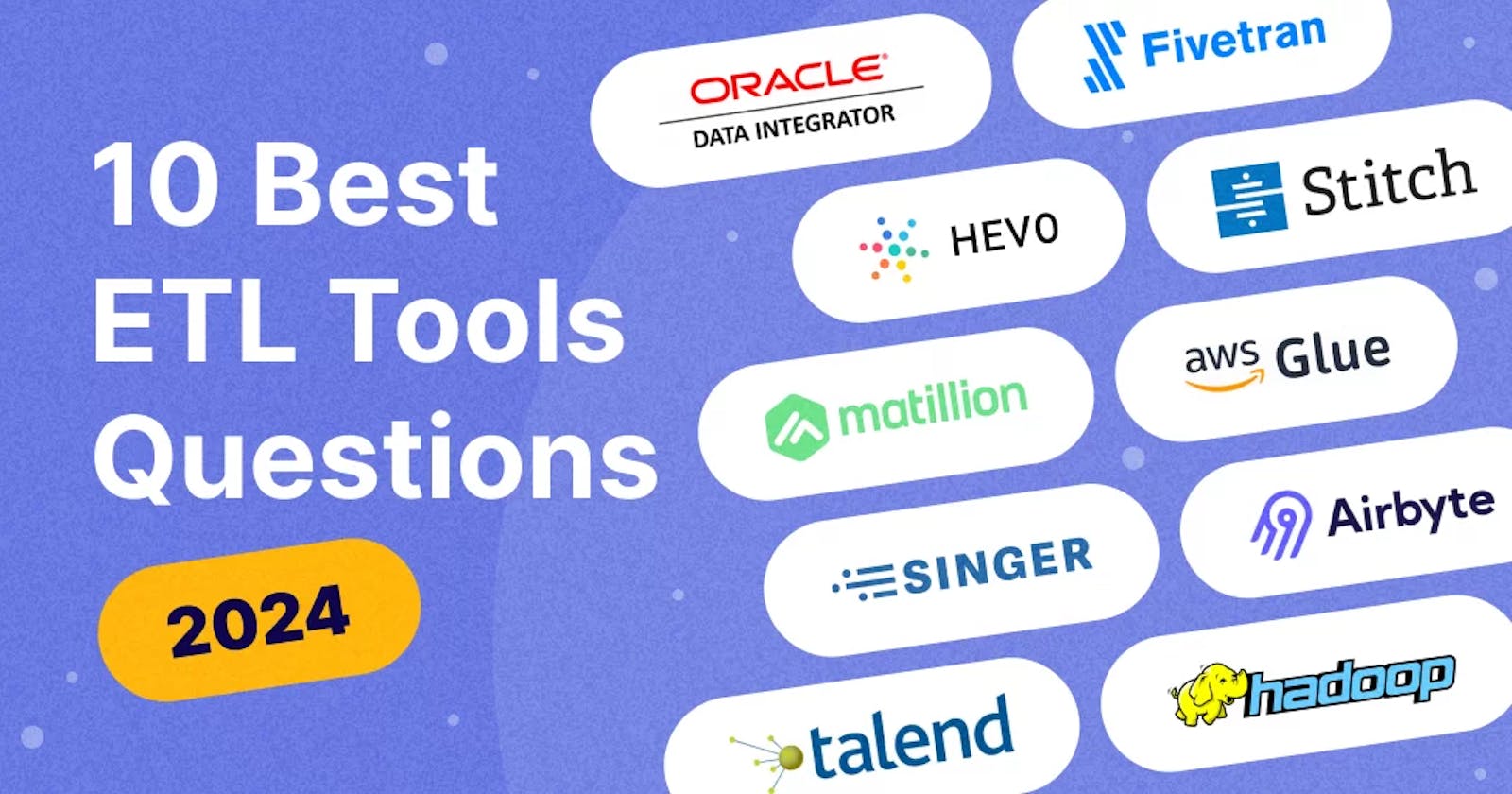Table of contents
ETL tools automate processes, improve data accuracy, and generate valuable insights. This article reviews the top 10 ETL tools of this year, focusing on their distinctive features, scalability, ease of use, and overall performance. It is intended for data engineers looking to expand their toolkit with the latest ETL technologies, as well as business leaders looking to capitalize on their organization’s data. Our goal is to provide a clear understanding of the current state of the ETL tools market and help you make informed decisions to implement your data strategies.
Popular ETL Tools
Cloud-Based ETL Tools:
Fivetran automates data integration into cloud warehouses with minimal configuration, leveraging a managed service model. It dynamically adapts to schema changes, ensuring consistent data delivery for analytics. Technical highlights include its extensive connector ecosystem and dbt-powered transformation layer, which facilitate complex data integration scenarios with ease.
Fivetran architectural diagram
Hevo Data’s prowess in real-time data processing shines through its no-code platform, making it a favorite among non-technical users for its simplicity. The platform’s expansion to include over 150 sources, coupled with sophisticated in-flight transformation capabilities, underscores its commitment to versatile, real-time data integration strategies.
Stitch benefits from an integration with a broader suite of data quality and governance tools, enhancing its utility. Its open-source foundation encourages a vibrant community contribution, expanding its capabilities. The tool’s adaptability is evident in its scalable model, which caters to businesses of all sizes, making Stitch a practical choice for growing companies.
Stick Internal Architecture
Marillion’s ETL tool is engineered for cloud data warehouse platforms, providing a visual interface for ETL job design. Recent updates focus on enhancing low-code transformation capabilities and optimizing for cloud efficiencies. This makes Matillion ideal for enterprises looking for scalable, cloud-native ETL processes.
Open-Source ETL Tools:
Singer stands out for its simplicity and flexibility, championed by a community dedicated to expanding its capabilities. Recent contributions have significantly diversified its connector library, making it an increasingly robust tool for developers seeking to build and customize ETL pipelines with precision.
Airbyte is quickly ascending as a leader in the open-source ETL space, boasting a rapidly growing connector ecosystem due to its active community. The platform’s latest updates have streamlined custom connector development, enhancing Airbyte’s usability and making it an increasingly compelling option for companies seeking scalable data integration solutions.
Enterprise ETL Tools:
Oracle Data Integrator specializes in high-volume data integrations, utilizing an E-LT architecture that leverages the database engine for transformations. Recent enhancements in cloud service integrations reinforce its utility in Oracle-centric ecosystems, providing efficient and comprehensive data integration capabilities.
Talend’s platform merges open-source agility with enterprise-level features for data integration and quality management. It facilitates collaborative data integration projects, enhancing data governance across the integration lifecycle. Talend’s integration with modern data ecosystems makes it a powerful tool for maintaining data integrity and regulatory compliance.
Other Tools:
AWS Glue, a managed ETL service, introduces capabilities for managing streaming ETL jobs and refined data cataloging. Integrated tightly with the AWS ecosystem, it offers a serverless option for orchestrating complex data workflows, leveraging the scalability and breadth of AWS services.
Hadoop’s ecosystem, known for handling big data processing, supports ETL functionalities through tools like Apache Sqoop and Apache Flume. It’s designed for scalability, processing large volumes of data across distributed systems, highlighting Hadoop’s role in data-intensive environments.
